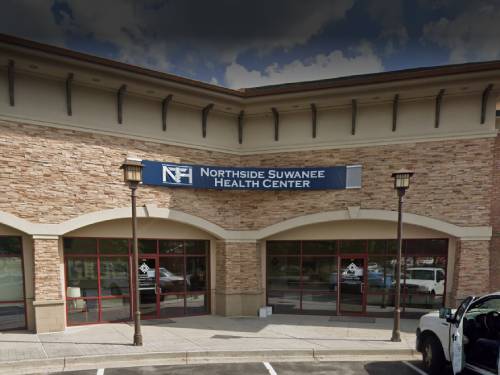Atherosclerosis
Lorem ipsum dolor sit amet, consectetur adipiscing elit.

Testing and Treatment of Atherosclerosis
In the United States, over 600,000 individuals die annually from heart disease. Atherosclerosis contributes to many of these deaths. This specific disease is a chronic inflammatory heart disease in which the arteries become narrowed and blocked with plaque. It is a common condition that can lead to coronary artery disease, heart attack, or stroke. If you are concerned that you may have atherosclerosis, seeking treatment from a healthcare professional is vital. There are many treatments available that can help improve your symptoms and help prevent further health problems.
You’ve probably heard about clogged arteries, but do you know about atherosclerosis, the silent process behind this condition? This gradual plaque buildup in your arteries can develop over years without noticeable symptoms, potentially leading to serious cardiovascular problems. Suppose you have risk factors like high cholesterol, high blood pressure, or a family history of heart disease. In that case, it’s crucial to consider visiting our Atlanta heart doctors for a comprehensive evaluation.
Atherosclerosis occurs when fatty deposits, cholesterol, and other substances accumulate on the inner walls of your arteries. Think of it as rust slowly building up inside a pipe, narrowing the passage and making it harder for water to flow through. In this case, the “water” is your blood, and the restricted flow can seriously affect your heart and overall health.
You might wonder why atherosclerosis is so concerning, especially if you feel fine. The danger lies in its progressive nature and potential complications. As arteries narrow, they restrict blood flow to vital organs. This can lead to health threats, depending on which arteries are affected. Atherosclerosis in coronary arteries can cause chest pain (angina) or heart attacks. If it occurs in arteries leading to the brain, it can result in strokes. When leg arteries are affected, you might experience pain while walking (peripheral artery disease).
Atherosclerosis often develops silently over decades, which is why it’s sometimes called a “silent killer.” Early stages usually don’t cause symptoms. As the condition progresses, you might experience chest pain, shortness of breath, fatigue, or leg pain during physical activity. However, for many people, the first sign of atherosclerosis is a heart attack or stroke.
By visiting our Atlanta heart doctors, you’re taking a proactive step towards protecting your cardiovascular health. Our cardiologists are experts at detecting and managing atherosclerosis. They can perform tests like cholesterol screenings, stress tests, or imaging studies to assess your arteries’ health and overall cardiovascular risk.
During your visit, you’ll receive personalized testing and treatment. Our doctors will evaluate your risk factors, including age, smoking, diet, physical inactivity, and certain medical conditions. They’ll work with you to develop a treatment plan, which might involve lifestyle changes, medications to control cholesterol and blood pressure, or, in some cases, procedures to improve blood flow in severely narrowed arteries.
Don’t wait for symptoms to appear. Take charge of your health today by scheduling an appointment with our Atlanta heart doctors. While atherosclerosis is a chronic condition, its progression can be slowed or even halted with proper care. Early detection and management are key to preventing serious complications and maintaining a healthy cardiovascular system. Our team is here to help you keep your heart healthy for years.
You can continue reading about atherosclerosis testing and treatment on this page and learn more about CVG’s comprehensive cardiac care.
What is atherosclerosis?
Atherosclerosis occurs when excessive plaque, made primarily of cholesterol and fat, builds up in the heart’s arteries, which causes the artery to thicken or become rigid. Blood, which carries oxygen and nutrients to the body, must flow through arteries, which cannot happen when plaque accumulates. Atherosclerosis is a significant health predicament.
According to the NIH, “Atherosclerosis is a chronic inflammatory disease of the arteries and is the underlying cause of about 50% of all deaths in westernized society. “
This fact does not mean that death certificates have atherosclerosis written on 50% of heart-related deaths but that the condition is one thing that led to others, which in turn caused death.
According to American Heart Association cardiologists, when atherosclerosis occurs, “plaque may partially or totally block blood flow through large- or medium-sized arteries in the heart, brain, pelvis, legs, arms or kidneys.”
Atherosclerosis can lead to the following conditions:
- Angina, or chest pain
- Carotid artery disease
- Chronic kidney disease
- Coronary heart disease
- Peripheral artery disease, or PAD
- Ultimately, atherosclerosis causes death in many cases.
Anyone can develop plaque in their arteries, though some individuals are more at risk for developing it and having heart-related problems due to the build-up. And, unfortunately, many people don’t know that they have this problem until it’s too late.
Who is at risk for atherosclerosis?
People who are young and old, healthy or not, can develop atherosclerosis in the heart arteries. Those who live an unhealthy lifestyle are much more at risk because of excess fat and cholesterol, but even people who have a healthy weight and eat well can have issues with cholesterol.
Common risk factors include:
- Obesity
- Diabetes (Type I)
- High blood pressure
- High triglyceride level
- High cholesterol
- Smoking
- Genetics
- Diet high in saturated fats
- Physical inactivity
But again, anyone has a risk of plaque buildup and the loss of an oxygen-rich blood supply, which is why it can be a silent killer.
Treatment of atherosclerosis
Thankfully with the technology and medications available, atherosclerosis can diminish or go away altogether.
One primary thing to do is to prevent atherosclerosis from the get-go. Be proactive about your health, stay active, eat right, and make other smart health decisions. But, if you are one of many who already have atherosclerosis, various treatment options can save your life.
After your diagnosis, which can occur after undergoing one or more outpatient tests, your cardiologist will recommend the most appropriate treatment for your level of plaque buildup.
Doctors commonly prescribe statins, aspirin, and high blood pressure medications for this condition. Surgery is also an option, depending on the severity. Angioplasty, stent placement, and an endarterectomy, among other life-saving procedures, are available.
Regardless of treatment, it’ll be time to return to or start living a healthy lifestyle.
Symptoms of atherosclerosis
Atherosclerosis can slowly build up in the arteries over a series of decades. However, sometimes it can occur suddenly.
An article from the National Heart, Lung, and Blood Institute states that symptoms tend to appear when the body needs oxygen, such as when under emotional or physical stress. They list these symptoms as the most common to look out for.
- Chest pain, cold sweats, dizziness, extreme tiredness, heart palpitations, shortness of breath, nausea, and weakness
- Pain, aching, heaviness, or cramping in the legs worsens when active and lessens at rest.
- Problems with thinking and memory, weakness or numbness on one side of the body or face, and vision trouble are all early symptoms of vertebral artery disease. Transient ischemic attack (TIA) is a more severe symptom called a mini-stroke.
- Severe pain following meals, weight loss, and diarrhea are symptoms of mesenteric artery Ischemia of the intestines.
- Erectile dysfunction (ED) is an early warning sign that a man may be at higher risk for atherosclerosis and its complications.
This might be a lot to process, especially since there are so many symptoms to look for. But it is wise to be aware and understand when your body feels off so you can seek treatment.
Conclusion
Why Choose CVG?
Related Conditions:
- Causes And Treatment For Heart Arrhythmia
- Causes And Treatment Of Pulmonary Stenosis
- Expert Insights on Cardiac Catheterization
- Expert Insights on Low Blood Pressure
- Exploring the Latest Advances in Atrial Fibrillation Treatment
- Dangerously high cholesterol?
- Get Your Blood Pressure Test Today!
- Understanding Electrical Cardioversion
- What Are ACE Inhibitors Used For?
- What foods are high in cholesterol?
- What Heart Flutters Can Mean
- What is Heart Failure & How to Treat it?
- What Is The Success Rate Of The Watchman Procedure?
Top Conditions:
- How long can someone live with an enlarged heart?
- Pros and Cons of the Watchman Device
- Risks and Complications of Cardiac Catheterization
- Side Effects Of The Watchman Device
- The Benefits of Cardiac Catheterization
- The Dangers Of High Blood Pressure
- The Dangers Of High Cholesterol
- The Watchman Implant Procedure
- Tips To Lower High Cholesterol
- Understanding Cardiac Catheterization
Call to Schedule an Appointment
Board-certified Doctors
CVG’s twenty board-certified heart doctors will guide you through your healthcare journey with the utmost compassion and individual attention. We aim to provide you with state-of-the-art cardiac care that includes the full spectrum of services, from testing to diagnosis and treatment. The doctor/patient relationship is built on trust. Through our combined efforts, we can conquer any challenge that comes our way.
Invasive therapies may also treat an abnormal heart rhythm, such as electrical cardioversion, which sends electrical impulses through your chest wall and allows normal heart rhythm to restart, or catheter ablation that disconnects the abnormal rhythm’s pathway. Suppose your doctor determines that electrical devices are the best course of action. In that case, you may be given a permanent pacemaker, an implantable cardioverter-defibrillator (ICD), or biventricular (B-V) pacemakers and defibrillators.
How CVG Can Help
CVG offers multiple services that can discover an enlarged heart or conditions that will lead to it. At CVG, we perform stress tests that will observe blood flow and test for various forms of heart disease. There are three types of stress tests that we perform:
- A treadmill test is a test in which you will walk on a treadmill that gets faster and steeper every 3 minutes. This will stress your heart so that our nurse or doctor can determine your heart rate and blood pressure.
- An echo test is performed before and after your treadmill test to determine how well your heart pumps blood.
- A nuclear stress test is a treadmill test that is prefaced by an injection of medicine that shows the flow of blood to your heart.
We also offer cardiac catheterization to diagnose and treat several heart issues. If any of these tests determine a problem, we offer treatment solutions such as atrial fibrillation testing and catheter ablation. Learn more about our services here, or schedule an appointment to talk to our doctors.
Schedule Your Appointment with a CVG Atlanta Area Cardiologist
Expertise, experience, and compassion are the pillars of CVG’s patient-centered cardiac care. Please schedule your appointment with CVG today. Call (770) 962-0399 or 678-582-8586. You may also request an appointment online. If you have an emergency, don’t contact us online; please call 911.
Locations That Treat Atherosclerosis












